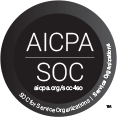Allergies. They can be as mild as the hay fever many of us experience in spring, or severe enough to cause fatal anaphylaxis. And they are only becoming more prevalent in our society.
The Asthma and Allergy Foundation of America estimates that approximately 50 million Americans are affected by allergies. And between 1997 and 2011, the number of children with food allergies increased a staggering 50 percent.
This increasingly common condition can make dining out difficult, and identifying what foods are potential hazards can be equally challenging. When in doubt, it’s best to defer to your guests to make the final decision, but following these tips will show your customers with allergies that you’re working to accommodate their needs — and help ensure they always have a safe, enjoyable experience at your restaurant:
1. Encourage your guests to call ahead with dietary restrictions.
As many chefs will tell you, the appearance of a ticket citing allergy restrictions can be disruptive. Oftentimes, work must be paused while an appropriate prep area is cleared, utensils are cleaned or sterilized, and the dish itself is prepared. And that’s not including the inherent stress of knowing you’re working around materials that could be dangerous for the very person you’re trying to help.
Add to that the chaos of a rush period, and you not only increase your employees’ stress, but also the chances of accidentally contaminating the allergic guest’s food as your kitchen staff rushes to stay on track.
To help prevent this, encourage your guests to report food allergies before they arrive at your restaurant. With advance notice, your kitchen staff can prepare allergen-free prep areas unrushed. And you may even be able to provide your guest additional information about your menu to help them make the decision of what to order easier.
2. Set up a designated allergy process and practice it with your staff.
All that being said, even the most diligent of guests won’t always be able to call ahead. But that doesn’t mean their experience — or safety — should suffer.
Talk with your kitchen staff about their concerns with preparing food for people with dietary restrictions, and build a process for dealing with those situations. If their concern is a narrow kitchen where contamination is likely, investigate acquiring capital from a merchant cash advance to build out an allergen-free space that can be used, instead. If cleaning utensils is slowing your chefs down, keep equipment that is to be used only in the case of allergies in a secure place — far away from potential contaminants — to help expedite the process.
Even something as simple as developing a system for halting and resuming work when a special request comes in can help keep your kitchen staff on track — and, more importantly, decrease the chances of accidental contamination. The more you practice, the easier each new process will become — and the better the results will be for both your staff and your guests.
3. Keep complete ingredient information on hand.
The passage of the Food Allergen Labeling and Consumer Protection Act of 2004 required food producers to label any ingredient that falls into one of the eight food categories that are responsible for 90 percent of allergic reactions (milk, eggs, fish, crustacean shellfish, wheat, soy, peanuts, and tree nuts). Even ingredients that go by a different name, such as lecithin, must be labeled with their corresponding food category, in this case soy. This means nearly all of the packaged foods you purchase will have everything you need to know right on the container.
To make identifying potential allergens in your food easier, collect a list of ingredients for every dish on the menu, and keep print outs available for your servers or hosts to give to people with allergies if they express concern or want to know more about your menu. Include this information on your website, as well, so that guests can review their choices before even stepping through your door.
You can also post these ingredient lists in your kitchen and prep areas as a reminder to your staff to be on the lookout for any potential contaminants — and to keep these dietary restrictions top of mind for everyone involved.
4. Train your staff on how to handle a severe allergic reaction.
According to Food Allergy Research and Education, every 3 minutes, an allergic reaction sends someone to the emergency department. Although your staff can’t deliver emergency services to a guest who is having an allergic reaction, they can be an integral part in ensuring the situation goes as smoothly, and as safely, as possible.
Train your staff to identify common symptoms of an allergic reaction — such as difficulty breathing, facial swelling, or disorientation — and to ask guests if they need assistance as soon as symptoms appear. Even a reaction that seems mild can quickly escalate into a dangerous situation, so prepare your staff to call emergency services with all the necessary information, including:
- the guest’s symptoms
- what he or she consumed
- how long ago the food was ingested.
With the help of a local doctor, you can even create a list of questions a 911 operator or paramedic may ask and role-play calls with your staff.
Most importantly, however, coach your staff in how to remain calm, and to keep your other customers calm, as well. Encourage employees to listen closely to what the allergic individual or his or her companion requests and follow all directions quickly, but coolly. And instruct staff in how to explain the emergency and the actions being taken to their other tables, ensuring no one else panics or attempts to jump in, making an already bad situation worse.
If you have questions about how to make allergy awareness a part of the culture of your business, don’t hesitate to ask a doctor, dietician, or loved one with allergies. Going out to eat can be stressful for individuals with any dietary restrictions, let alone potentially dangerous ones. The more you know about the difficulties they face, the better experience you can provide — and the more likely it will be that those guests will come back again and again
Want to learn more about the most common allergens in your kitchen and how to spot them — before they reach a guest’s plate? Check out our post on hidden allergy dangers.






